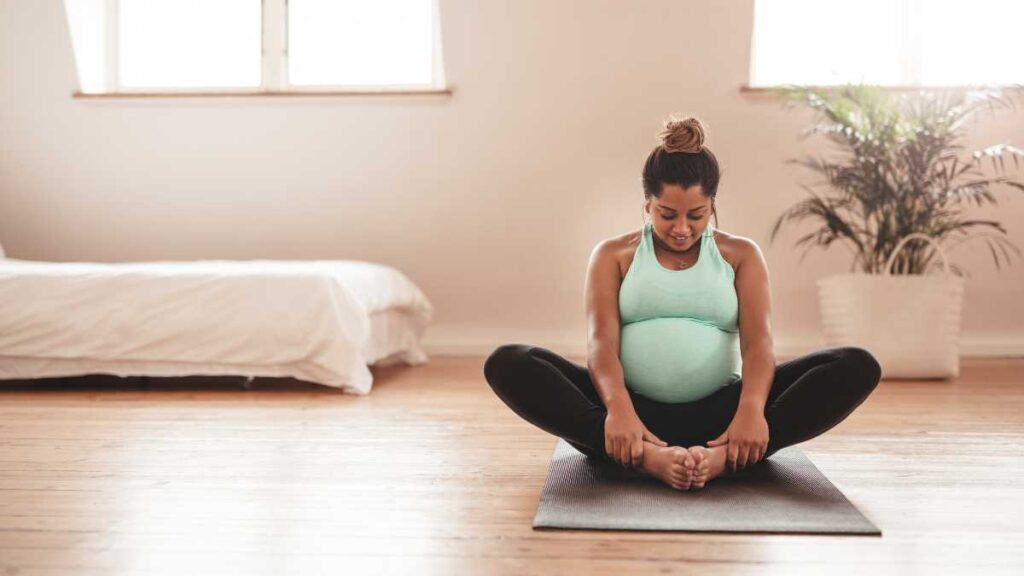Thinking about staying active during pregnancy but unsure of what’s safe? Think about this: you’re a few weeks into your pregnancy, and you’ve been doing reformer Pilates for years.
It’s your go-to workout for strength, flexibility, and stress relief.
But now, you’re wondering—can you do reformer Pilates while pregnant? The short answer is yes but with modifications and professional guidance.
Pregnancy doesn’t mean giving up your favorite workouts; it just means adapting them to suit your changing body.
Staying active during pregnancy is crucial for both physical and mental well-being. Exercise helps reduce back pain, improve sleep, and even prepare your body for labor.
So, if you’re considering reformer Pilates, let’s dive deeper into why it’s a great option and how to practice it safely.
What Is Reformer Pilates and Why Is It Popular Among Pregnant Women?

Reformer Pilates uses a specialized machine with springs, straps, and a sliding carriage to provide resistance-based exercises.
Unlike traditional mat Pilates, the reformer allows for more controlled movements, making it ideal for low-impact workouts.
This is why it’s so popular among pregnant women—it’s gentle on the joints yet effective for building core stability, improving posture, and enhancing overall fitness.
During pregnancy, many women look for prenatal fitness options that are safe and adaptable.
Reformer Pilates fits the bill perfectly because it can be customized to accommodate your growing belly and shifting center of gravity.
How Safe Is Reformer Pilates During Pregnancy?
Safety is always the top priority when exercising while pregnant. Thankfully, studies show that low-impact exercises like reformer Pilates are not only safe but beneficial during pregnancy.
According to the American College of Obstetricians and Gynecologists (ACOG), moderate exercise is recommended unless your doctor advises otherwise.
That said, safety depends on factors like your trimester, experience level, and medical history.
For instance, beginners should start slowly and under supervision, while seasoned practitioners may continue with modifications. Always consult your healthcare provider before beginning any new exercise routine.
Professional guidance is key here. A certified prenatal Pilates instructor can help tailor exercises to your needs, ensuring you stay safe and comfortable.
Look for instructors trained in prenatal modifications who understand the unique demands of pregnancy.
Benefits of Reformer Pilates During Pregnancy

Let’s talk about why reformer Pilates shines as a prenatal workout. First, there are the physical perks.
Strengthening your core muscles supports your growing belly and reduces back pain—a common complaint during pregnancy.
Improved posture also helps combat the strain caused by carrying extra weight.
Then there’s the mental health boost. Pregnancy can bring anxiety and stress, but reformer Pilates encourages mindfulness through focused breathing and deliberate movements. It’s like a mini meditation session for your mind and body.
Another major benefit? Pelvic floor strengthening. Strong pelvic muscles can lead to smoother labor and faster postpartum recovery. Plus, enhanced blood circulation reduces swelling in your legs and feet—a win-win!
Pregnancy doesn’t mean giving up your workouts. With reformer Pilates, you can stay active without compromising safety.
Precautions and Modifications for Each Trimester
Your body changes dramatically throughout pregnancy, so your routine should too. Here’s how to adapt reformer Pilates for each trimester:
First Trimester
This stage is often the easiest for continuing regular workouts. Focus on maintaining your current routine but avoid overexertion. Listen to your body—if something feels off, skip it.
Second Trimester
As your bump grows, modify exercises to avoid lying flat on your back. Opt for side-lying positions or seated variations instead.
Strengthening exercises for your glutes and thighs will support your changing posture.
Third Trimester
Comfort becomes paramount here. Use props like pillows for added support and choose gentler movements.
Avoid deep twists and high-resistance leg presses, which could strain your abdominal muscles.
Your body changes, and so should your routine. These adjustments ensure you stay safe and comfortable at every stage.
Exercises to Avoid While Pregnant

While reformer Pilates is generally safe, some exercises aren’t suitable during pregnancy. Avoid supine positions (lying flat on your back) after the first trimester, as they can restrict blood flow to the baby.
Deep twists and high-resistance leg presses are also no-gos, as they put unnecessary pressure on your abdomen.
Instead, modify these movements. For example, swap a twist for a gentle side bend or reduce resistance on leg presses. Always prioritize comfort over intensity.
Expert Insights: What Do Trainers and Doctors Say?
Experts agree that Reformer Pilates is an excellent choice for prenatal fitness. OB-GYNs often recommend low-impact exercises to maintain cardiovascular health and muscle tone.
Prenatal fitness trainers emphasize the importance of working with a certified instructor who understands the nuances of pregnancy.
Research backs this up. A study found that women who engaged in regular, supervised exercise during pregnancy reported fewer complications and better outcomes.
Another study highlighted the role of pelvic floor exercises in reducing urinary incontinence postpartum.
The takeaway? Professional guidance matters. Whether you’re new to reformer Pilates or a seasoned pro, partnering with a knowledgeable instructor ensures you get the most out of your sessions safely.
My Experience with Prenatal Clients
During my consultations with pregnant clients, I’ve seen firsthand how reformer Pilates transforms their journey. Many come to me worried about staying active without harming their baby.
One client, Sarah, was hesitant to continue her Pilates practice until we discussed modifications tailored to her needs.
By her third trimester, she felt stronger, more confident, and better prepared for labor.
These stories reinforce my belief in the power of reformer Pilates during pregnancy.
It’s not just about physical fitness—it’s about empowering women to take charge of their bodies during this transformative time.
Conclusion – Can You Do Reformer Pilates While Pregnant?
So, can you do reformer Pilates while pregnant? Absolutely! With proper modifications and professional guidance, it’s one of the safest and most effective ways to stay active during pregnancy.
From improved posture to reduced stress, the benefits are undeniable.
Before starting, consult your healthcare provider to ensure it’s right for you. And remember, listen to your body—it knows best. Stay strong, mama—you’ve got this!












